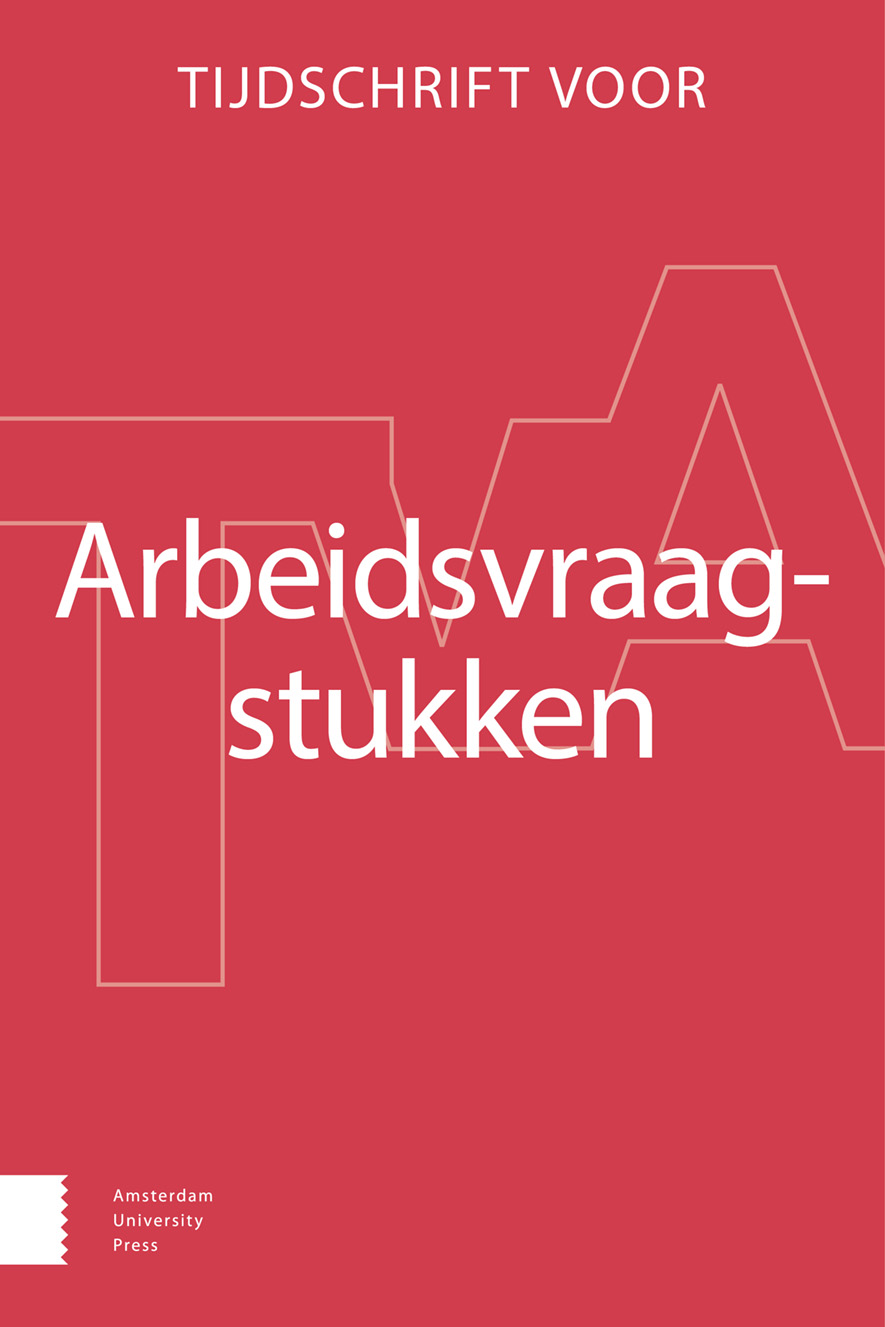-
OAAllemaal precair? Arbeid en gevoelens van onzekerheid en angst
- Amsterdam University Press
- Source: Tijdschrift voor Arbeidsvraagstukken, Volume 39, Issue 1, mrt. 2023, p. 22 - 36
-
- 01 mrt. 2023
Samenvatting
Veel werkenden hebben psychische problemen die samenhangen met gevoelens van onzekerheid en angst in hun werk. In dit essay wordt op basis van literatuuronderzoek gezocht naar de oorzaken van die problemen. Uitgangspunt is de precariteitshese die stelt dat werkenden angstig zijn geworden als gevolg van de flexibilisering van arbeidscontracten en de afbouw van de verzorgingsstaat. De precariteitsthese wordt onderzocht voor werkenden met een vast contract. In de empirische onderzoeksliteratuur zijn weinig aanwijzingen te vinden dat bestaansonzekerheid voor deze werkenden de grote bron is van angst en onzekerheid. Er zijn meer aanwijzingen dat hoge prestatiedruk en het daaraan gepaarde gevoel tekort te schieten de oorzaken zijn van het probleem. Het essay wordt afgesloten met een reflectie op de wijze waarop prestatiedruk in het Nederlandse arbeidsbestel verminderd kan worden.


